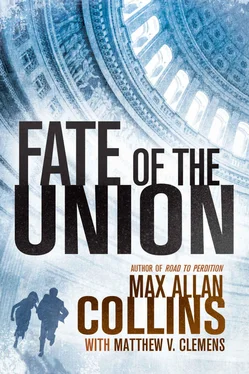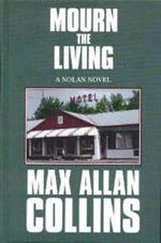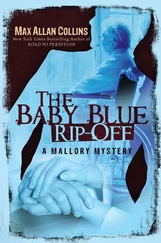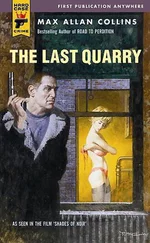They parked on the street in front of the house, the sloped lawn snowy but the sidewalks clear. Rogers had gone the dark suit/sensible shoes route, under her peacoat, no gun, and Reeder wore a Brooks Brothers number beneath his Burberry. No one was in sight, but by the time they were up the short flight of stairs to the covered porch, a bodyguard in a black suit emerged, flat-nosed, dead-eyed, with military-short hair as dark as his suit.
She displayed her credentials. “Patti Rogers, FBI. This is my consultant, Joe Reeder. We’re expected.”
The bodyguard frowned. The voice came thick, like he was tasting molasses. “You’re expected. He isn’t.”
“Check with Mr. Benjamin, please.”
The door closed on them, but reopened only thirty seconds or so later. The bodyguard gestured them in.
Dark wood stairs rose before them, a living room to the right, decorated with vintage mission furnishings — they could be Frank Lloyd Wright originals for all she knew — and the floor was a gleaming parquet. Somebody well-off lived here. You might not guess billionaire, but no other home on this street would likely rival it.
Adam Benjamin emerged from sliding double doors at left, smiling warmly. The silver hair, the dark-rimmed glasses, the kind, professorial manner, all of it was in full force, set off perfectly by a light-blue sweater over a yellow shirt and baggy tan trousers. Your favorite uncle.
“Joe,” Benjamin said, offering his hand. “I was hoping you might come along. Pleasure to see you. Special Agent Rogers, a pleasure seeing you again, as well. Please, join me in my study. Anything to drink? Coffee, tea, something stronger?”
“We’re fine,” Reeder said.
Then they were seated before a big old pine desk that had seen a lot of years and plenty of use, probably dating back to Benjamin’s teaching days, and indeed the whole study had a warm folksiness suited to their host. The only sign of money was the wall of books whose famous titles, both fiction and nonfiction, went back not just decades, but in some cases centuries. One shelf was devoted to multiple copies of Benjamin’s own Common Sense for the Uncommon Man .
The only clue that this wasn’t 1952 was the sixty-inch wall-mounted monitor to his left on the far wall, above a tufted leather couch on which his briefcase sat. But his desk lacked any sign of a computer setup, just some framed photos and the usual suspects, pen holder, stapler, IN and OUT box and so on.
“Thank you for seeing us,” Rogers said. “And again, this is an informal, off-the-record chat.”
Benjamin nodded, smiled. “Certainly... though I believe I know why you’re here.”
“Probably you do. We’d like your thoughts on Frank Elmore, in particular, and possibly touch on Lynn Barr.”
A sorrowful expression washed away the smile and he rocked back in his swivel chair. “Let’s start with a question. Why has there been nothing in the media about their actions? Other than the assumption that they were... what is the unfortunate phrase? ‘Collateral damage’ in the second attempt on my life?”
Reeder said, “Well, that will come. The Bureau has been investigating, and a full in-depth report to the public is imminent.”
Rogers kept her face blank — Reeder had taught her well — but of course what Joe had just told Benjamin was an outright lie.
Their host rocked. “I’d be interested to know what’s in that report... if I’m not stepping into some kind of classified area.”
Rogers said, “We’ll be glad to share at least some of what we’ve discovered, only... what’s your take on Frank Elmore and Lynn Barr?”
But Reeder jumped in. “First, Adam, we should update you, specifically on those two. Seems Thomas Stanton, the would-be Constitution Hall assassin, was hired through a subsidiary of Barmore Holdings.”
“Good heavens. How can you be sure of that, Joe?”
“Stanton was dying of cancer. You’re a student of history — remember Zangara, who was hired to pretend to go after FDR, when Chicago Mayor Cermak was the intended target all along? Barmore set up one-hundred-grand trust funds for both of the dying man’s kids.”
Benjamin’s expression was grave; he shook his head slowly. “That confirms my worst suspicions.”
Rogers asked, “Which are?”
“That you were right in advising me that Frank and Lynn betrayed my trust and feathered their own nests, in a scheme of widespread corporate embezzling. Starting companies I knew nothing of, and stuffing their own pockets with the results. Do their bank accounts indicate payments beyond their salaries?”
“They do,” Rogers confirmed. “For the last three years. They were both millionaires several times over.”
“But if I’d discovered their actions,” Benjamin said firmly, frowning, raising a fist, “they’d have had those funds seized, and gone to prison. I have no compassion for traitors.”
Reeder said, “Their scheme was much more than monetary, Adam. What I’m about to tell you won’t come out until tomorrow. We need your word that you won’t share this with even your closest and most trusted inner circle... if any have survived.”
“You have my word,” Benjamin said.
Reeder told him that the plot to blow up the Capitol had been confirmed, indeed using the next-gen explosive perfected and stabilized in Barmore laboratories. He did not get into how the plot was foiled.
“It’s fantastic,” Benjamin said, seemingly stunned. “But why is this being kept from the public?”
“That’s just for now. Until the report is made public.”
He was shaking his head, staring into nothing. “Then it may be possible that Frank and Lynn were well-meaning but misguided souls, who thought they were helping me. Who misunderstood and perverted my goals.”
Reeder asked, “What do you think they were trying to accomplish?”
He sighed, shook his head again, apparently overwhelmed. “Frank, like many of us, thought that our great country might be... beyond repair. Certainly America has been paralyzed by the extreme right and their equally feckless counterpart on the left. My guess is... Frank must have thought the only way to return this country to the people, the majority in the sane middle who have been so badly served by major-party loyalty to special interests... was to... start over. Tabula rasa, clean slate.”
Reeder said, “Sounds more like scorched earth.”
Another grand sigh was followed by a grander shrug. “I only mean to say, I understand his motivation. I abhor and condemn his methods... if indeed my theory about the ‘why’ of his actions is correct.”
“Let’s explore your theory further,” Reeder said.
“All right. If that’s really necessary.”
“Necessary or not, it might be... illuminating. Would you agree that Elmore and Barr hired Stanton in order to boost your popularity as a presidential candidate? By having you survive an assassination attempt?”
“That seems a bizarre reading of the facts. If they wanted me to become president, would they expose me to so terrible a risk?”
“Was it a risk?” Reeder asked. “Jay Akers was right there on stage, and for that matter, so was I, and Agent Rogers. Seems to me the person at risk was the man coming up out of the audience with a gun in his hand.”
Benjamin was shaking his head. “Improbable. I might say preposterous.”
“Well, maybe Elmore and Barr were fanatics. Assassinated, you become a martyr, and someone else from the Common Sense Movement steps forward.”
Benjamin frowned. “I... I suppose that’s possible. But there’s not really anyone else in the movement who could step in and effectively mount a campaign...”
“No, I guess there really isn’t,” Reeder said. “But of course, it wasn’t Elmore or even Barr who saw to it that I was on stage that night. That was your doing.”
Читать дальше












